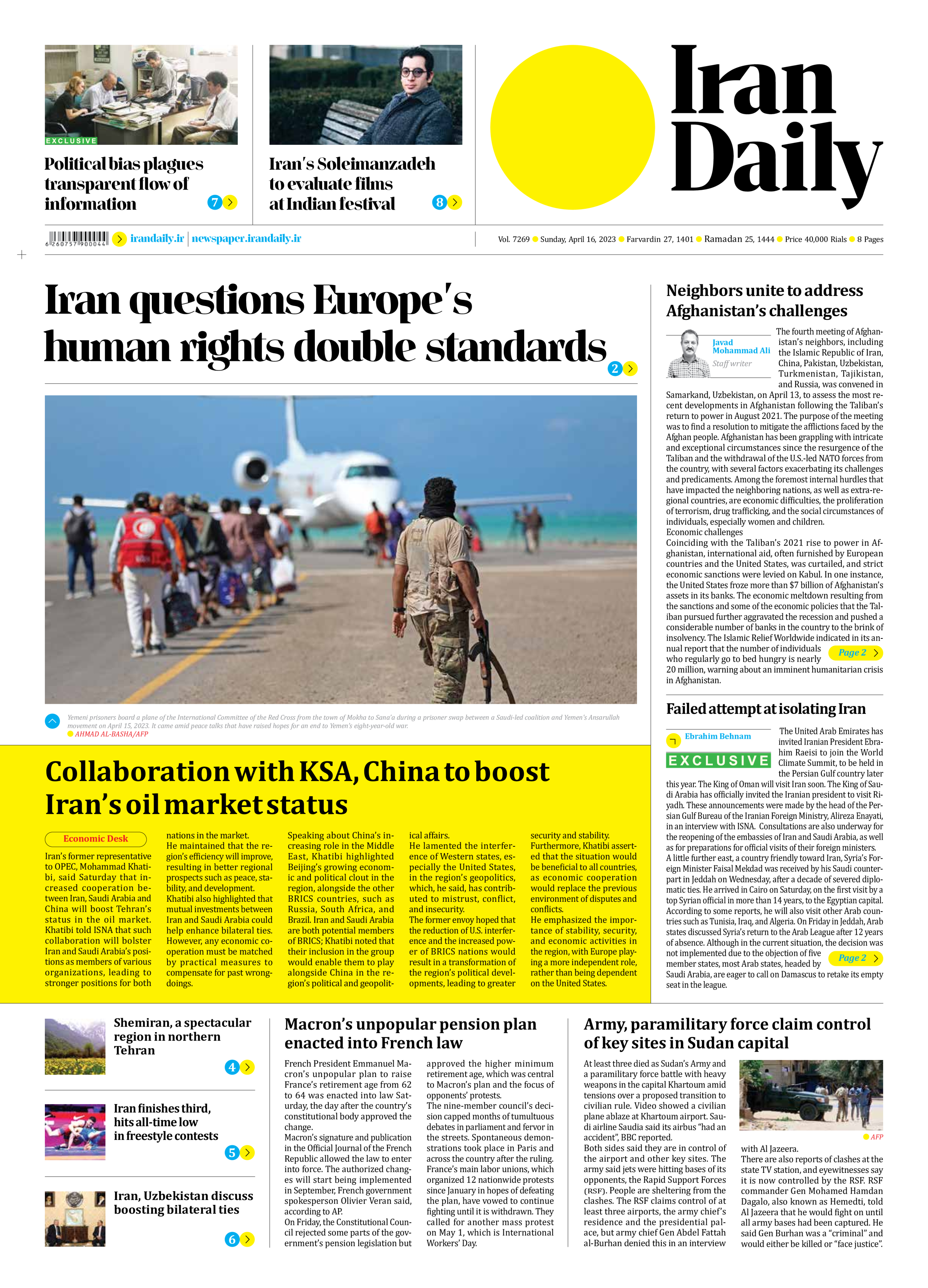
Collaboration with KSA, China to boost Iran’s oil market status
Iran’s former representative to OPEC, Mohammad Khatibi, said Saturday that increased cooperation between Iran, Saudi Arabia and China will boost Tehran’s status in the oil market. Khatibi told ISNA that such collaboration will bolster Iran and Saudi Arabia’s positions as members of various organizations, leading to stronger positions for both nations in the market.
He maintained that the region’s efficiency will improve, resulting in better regional prospects such as peace, stability, and development.
Khatibi also highlighted that mutual investments between Iran and Saudi Arabia could help enhance bilateral ties. However, any economic cooperation must be matched by practical measures to compensate for past wrongdoings.
Speaking about China’s increasing role in the Middle East, Khatibi highlighted Beijing’s growing economic and political clout in the region, alongside the other BRICS countries, such as Russia, South Africa, and Brazil. Iran and Saudi Arabia are both potential members of BRICS; Khatibi noted that their inclusion in the group would enable them to play alongside China in the region’s political and geopolitical affairs.
He lamented the interference of Western states, especially the United States, in the region’s geopolitics, which, he said, has contributed to mistrust, conflict, and insecurity.
The former envoy hoped that the reduction of U.S. interference and the increased power of BRICS nations would result in a transformation of the region’s political developments, leading to greater security and stability.
Furthermore, Khatibi asserted that the situation would be beneficial to all countries, as economic cooperation would replace the previous environment of disputes and conflicts.
He emphasized the importance of stability, security, and economic activities in the region, with Europe playing a more independent role, rather than being dependent on the United States.







